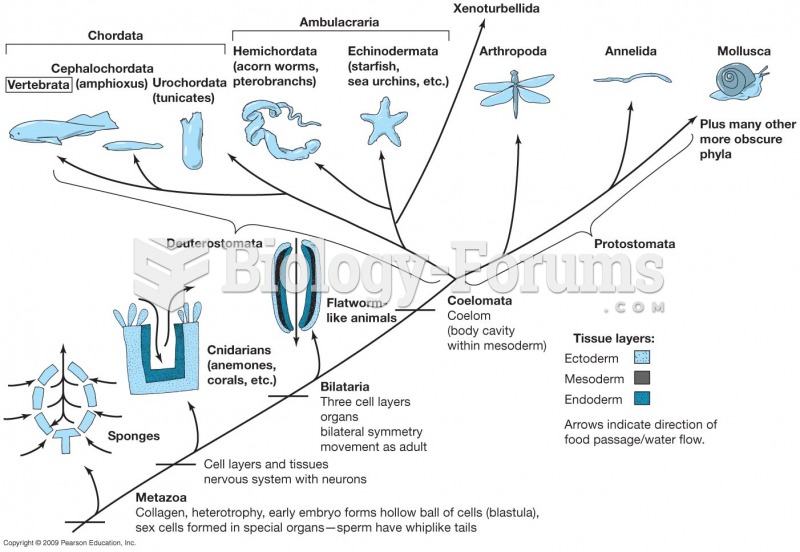|
|
|
The average person is easily confused by the terms pharmaceutics and pharmacology, thinking they are one and the same. Whereas pharmaceutics is the science of preparing and dispensing drugs (otherwise known as the science of pharmacy), pharmacology is the study of medications.
Adult head lice are gray, about ? inch long, and often have a tiny dot on their backs. A female can lay between 50 and 150 eggs within the several weeks that she is alive. They feed on human blood.
Medications that are definitely not safe to take when breastfeeding include radioactive drugs, antimetabolites, some cancer (chemotherapy) agents, bromocriptine, ergotamine, methotrexate, and cyclosporine.
In 1864, the first barbiturate (barbituric acid) was synthesized.
Excessive alcohol use costs the country approximately $235 billion every year.
 Lymphatic vessels pick up excess tissue fluid, purify it in the lymph nodes, and then return it to t
Lymphatic vessels pick up excess tissue fluid, purify it in the lymph nodes, and then return it to t
 Looking at objects in nature is a great way to encourage joint attention and allows infants to learn ...
Looking at objects in nature is a great way to encourage joint attention and allows infants to learn ...
 Steel-toed shoes are a worthwhile investment to help prevent foot injury due to falling objects. ...
Steel-toed shoes are a worthwhile investment to help prevent foot injury due to falling objects. ...




